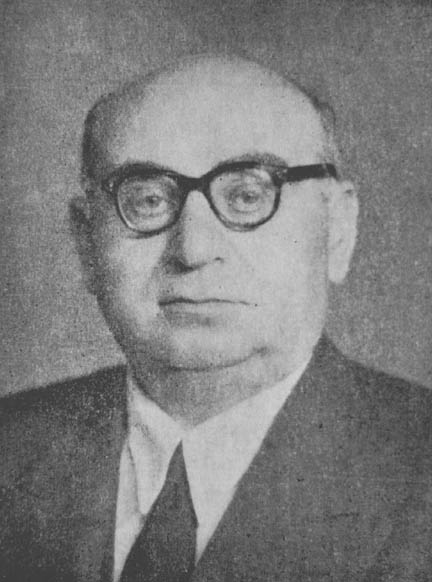Antoine Tabet
1907 - 1964
Nationality
Lebanon
Lebanon
Education
ESIB
ESIB
Degree
Engineer
Engineer
Year
1926
1926
Work
StartEndBuildingLocationCountry
Number of published projects in the database: 6
Notes
Antoine Tabet is an influential figure as engineer-architect, in organizing the Order of Engineers and Architects that he co-founded and headed twice, and as a political actor of international caliber.
After a degree in engineering from the Ecole Supérieure d’Ingénieurs de Beyrouth, he went to Paris and started architecture studies at the Ecole des Beaux-Arts while training at the office of Auguste Perret whom he considered to be his master. Upon his return to Beirut, he was architect on site for the construction of Hotel Saint-Georges, an iconic modernist building in Beirut designed by French architects close to Perret. From then on, his productive career comprised significant contributions such as the Hotel Orient-Palace in Damascus, Syria. Among his long list of works in Lebanon we find: the Abdel Kader and Sagesse Schools, the Alamaza Brewery, the Capucins Church, the Kaslik Monastery and University, the Union Building, the Capucins Church and the Ministry of Justice to name a few.
In 1948, Tabet was the Lebanese delegate at the first congress of the Union Internationale des Architectes in Lausanne, created with only twenty-two country members. He had a few public addresses on architecture that he published in Al-Tareeq, a political magazine that he co-initiated in 1941. Tabet was a political figure of international caliber and a member of the Association of Friendship with the Soviet Union. He founded the Lebanese Movement for Peace in 1949, and was a recipient of the Lenin Award for Peace in 1961.
Tabet died in Moscow in 1964, at age 57.
As much as in his architectural achievements, Antoine Tabet’s legacy resides in his humanism and in his interest in the social aspect of the architectural profession. He may well be the Lebanese architect who came the nearest to the revolutionary spirit of the modern movement with the ambition to effect change.
(George Arbid)
After a degree in engineering from the Ecole Supérieure d’Ingénieurs de Beyrouth, he went to Paris and started architecture studies at the Ecole des Beaux-Arts while training at the office of Auguste Perret whom he considered to be his master. Upon his return to Beirut, he was architect on site for the construction of Hotel Saint-Georges, an iconic modernist building in Beirut designed by French architects close to Perret. From then on, his productive career comprised significant contributions such as the Hotel Orient-Palace in Damascus, Syria. Among his long list of works in Lebanon we find: the Abdel Kader and Sagesse Schools, the Alamaza Brewery, the Capucins Church, the Kaslik Monastery and University, the Union Building, the Capucins Church and the Ministry of Justice to name a few.
In 1948, Tabet was the Lebanese delegate at the first congress of the Union Internationale des Architectes in Lausanne, created with only twenty-two country members. He had a few public addresses on architecture that he published in Al-Tareeq, a political magazine that he co-initiated in 1941. Tabet was a political figure of international caliber and a member of the Association of Friendship with the Soviet Union. He founded the Lebanese Movement for Peace in 1949, and was a recipient of the Lenin Award for Peace in 1961.
Tabet died in Moscow in 1964, at age 57.
As much as in his architectural achievements, Antoine Tabet’s legacy resides in his humanism and in his interest in the social aspect of the architectural profession. He may well be the Lebanese architect who came the nearest to the revolutionary spirit of the modern movement with the ambition to effect change.
(George Arbid)
Information in this database is updated constantly. Do not hesitate to send us comments, information, or illustrations (with appropriate credits) to database@arab-architecture.org
